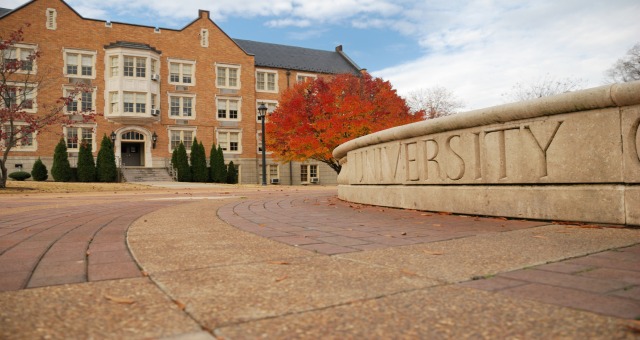Managing Student Complaints
Knowing how to handle student complaints is an essential skill for department chairs. In an interview with Academic Leader, Patricia Markunas, chair of the Psychology Department at Salem State University, offered advice on minimizing the number of complaints and managing those that do make it to the department chair.
Transition to Administration: From Autonomy to Hierarchy
Being a successful faculty member is not a predictor of success as an administrator. In addition to the need to develop a new set of skills, the transition from faculty member to administrator requires a different mind-set. And perhaps the most challenging aspect of this transition is the shift from...
Leading Change Amid Opposition
When Amanda Gingery Hostalka became chair of art and visual communication design at Stevenson University, one of her priorities was to make sure that learning outcomes for every track and major aligned with the department’s and institution’s missions. The importance of this task was heightened by the department’s upcoming move...
Putting Assessment in Its Place
What can you do with four minutes? You can close the report and check the clock, update your to-do list, sort through your mail, or respond to a minor e-mail query. There are many important tasks you can do in four minutes. And if you don’t do them now, you’ll...
How Much Does Instruction in Your Program Cost?
To manage resources effectively, it’s important to know how much it costs to teach students in your programs. Instructional costs vary from program to program based on class size, faculty salaries, equipment, and technology. And not all programs will generate enough revenue to cover costs. That’s OK as long as...
Six Ways to Ensure a Smooth Chair Transition
Faculty members often become chairs under less-than-ideal circumstances or for the wrong reasons. An underprepared faculty member or one with an axe to grind can wreak havoc and lead to frequent department chair turnover. Recognizing this all-too-common cycle, Gian Pagnucci, chair of the English Department at Indiana University of Pennsylvania,...
Best Practices for Conducting a Faculty Search
“The success, stability, and morale of an academic department largely depend on its faculty.” This is according to Thomas Weidner, chairperson of the School of Physical Education, Sport, and Exercise Science, and Samuel Cotton, chairperson of the Department of Technology, of Ball State University. At the 32nd Annual Academic Chairpersons...
Locating the Academic Leadership Land Mines
Beginning a position as an academic leader can be challenging under any circumstances. But those challenges increase exponentially when you’re hired into an institution. You enter a world where nearly everyone knows more about most local issues than you do. Alliances have already been formed. Coalitions that stand in opposition...
An Intellectual Property Policy for Online Education
Does your institution have an intellectual property policy specific to online courses and course materials? If so, do you know and understand it? Do faculty know it? If faculty receives a financial payment or release time to develop online course materials, does that change who owns the rights to course...
After Promotion and Tenure: Maintaining Faculty’s Upward Trajectory
While a necessary and worthy milestone, earning promotion and tenure is not an end goal of an academic career. During the pretenure years, a faculty member is gearing up for growth in the areas (e.g., teaching, research and teaching) defined by the institution to meet the mark for tenure. Ideally,...












